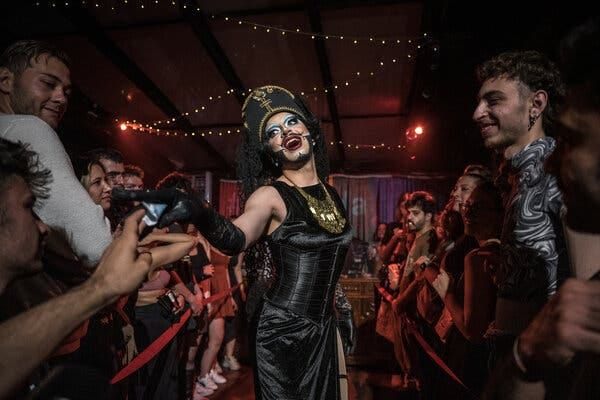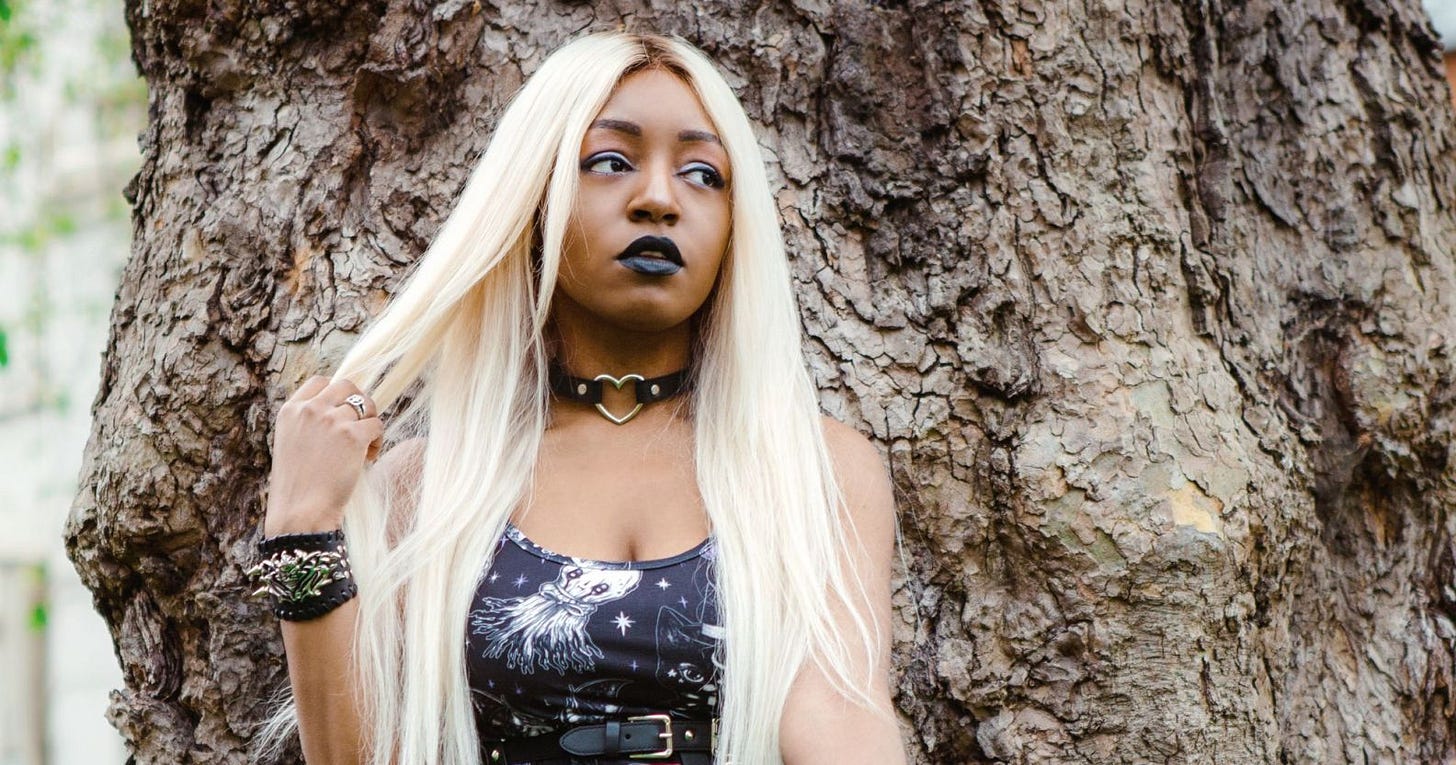Global Roundup: Remembering Ama Ata Aidoo, Turkey LGBTQ Community, Saudi Arabia Woman Arrested, NYC Pride’s First Asexual Grand Marshal, South Asian Women Podcasters
Curated by FG Contributor Samiha Hossain
Ama Ata Aidoo. Wikimedia Commons
One of Africa's most-celebrated authors and playwrights, Ghanaian Ama Ata Aidoo, has died aged 81. A renowned feminist, she depicted and celebrated the condition of African women in works such as The Dilemma of a Ghost, Our Sister Killjoy and Changes. She opposed what she described as a "Western perception that the African female is a downtrodden wretch".
A university professor, Ata Aidoo won many literary awards for her novels, plays and poems, including the 1992 Commonwealth Writers Prize for Changes, a love story about a statistician who divorces her first husband and enters into a polygamous marriage.
People sometimes question me, for instance, why are your women so strong? And I say, that is the only woman I know. -Ama Ata Aidoo
Ata Aidoo was a major influence on the younger generation of writers, including Nigeria's awarding-winning Chimamanda Ngozi Adichie. Also, Nigerian Afrobeats superstar Burna Boy included her powerful criticism of colonialism and ongoing exploitation of Africa's resources in his song Monsters You Made in 2020.
Ata Aidoo was born in a small village in Ghana's central Fanti-speaking region in 1942.
Her father had opened the first school in the village and was a strong influence on her.
At the age of 15 she decided that she wanted to be a writer and within just four years, had achieved that ambition after she was encouraged to enter a competition. She went on to study literature at the University of Ghana and became a lecturer, publishing her first play in 1964.
After her 18 month-foray into politics she went into self-imposed exile in Zimbabwe for a time and became a full-time writer. Her powerful impact will surely be felt for generations to come.
A drag performer who uses the stage name Florence Konstantina Delight at a club in Istanbul. Photograph by Sergey Ponomarev via NYT
Turkey’s President Recep Tayyip Erdogan has been vilifying gay people during his re-election campaign, calling them a threat to society and rallying conservatives against them, leaving the community feeling threatened, and alone. Erdogan, facing the greatest political threat of his two decades as the country’s dominant leader and seeking to woo conservatives, repeatedly attacked his opponents for supposedly supporting gay rights. He frequently attacked LGBTQ people, referring to them as “deviants” and saying they were “spreading like the plague.”
People are scared and having dystopian thoughts like, ‘Are we going to be slashed or violently attacked in the middle of the street?’ What will happen is that people will hide their identities, and that is bad enough. -Ogulcan Yediveren, coordinator at SPoD, an LGBTQ advocacy group in Istanbul
Though Turkey is a secular state that does not criminalize homosexuality and has laws against discrimination, more than a dozen LGBTQ people have told The New York Times that they often struggled to find jobs, secure housing and get quality health care as well as to be accepted by their friends, relatives, neighbors and co-workers. In recent years, they said they have encountered new restrictions on their visibility in society. Universities have shut down LGBTQ student clubs. And since 2014, the authorities have banned Pride parades in major cities, including in Istanbul, where crowds in the tens of thousands used to participate.
Rights advocates say that as Erdogan has gained power, his conservative outlook has filtered down, encouraging local authorities to restrict LGBTQ activities and pushing the security forces to crack down on gay rights activism. For instance, Nazlican Dogan, 26, is facing legal charges related to participation in pro-LGBTQ protests at Bogazici University in Istanbul.
What they want to impose on society in terms of other values is full of hatred and violence toward us. It was really ugly and it made us feel that we can’t exist in this country, like I should just leave. -Nazlican Dogan
SPoD runs a national hotline to field queries about sexual orientation, legal protections or how to access medical care or other services. The group can solve most issues related to services but most callers’ problems are social and emotional. They fear being outed and facing discrimination and violence. And now, the community fears that the demonization during the campaign will make those threats more acute. Despite the increased danger, many LGBTQ people vowed to keep fighting for their rights and maintaining their visibility in society. To deal with the fear of random attacks, they plan to look out for each other more to ensure they are safe.
Manahel al-Otaibi, a 29-year-old certified fitness instructor and artist who frequently promoted female empowerment on her social media accounts, was arrested in November 2022. Among other charges, Otaibi was accused by Saudi authorities of using a hashtag – translated to #societyisready – to call for an end to male guardianship rules. Otaibi has not yet been convicted or sentenced and remains in detention. But previous similar cases suggest that public demands for fundamental women’s rights – including inheritance rights, and ability to end a marriage by an abusive husband – have been deemed seditious.
The case marks the latest example of Saudis being arrested and imprisoned for using social media accounts to promote reform or challenge Saudi authorities. Salma al-Shehab, another Saudi woman and former PhD student at Leeds University, was sentenced by a terrorism court to more than three decades in jail for having a Twitter account and following and retweeting dissidents and activists.
Al-Otaibi’s cases are yet another example of Saudi Arabia’s empty promises when it comes to reforms. Saudi women still get imprisoned and face sham trials for demanding their rights, or for merely believing that they are now free to wear what they want. -Lina al-Hathloul, Saudi activist and head of monitoring and advocacy for ALQST, a human rights group
Court documents show that in addition to her use of social media, which was reported to authorities by religious police, Otaibi is accused of not wearing “decent” clothes. Fouz al-Otaibi, her sister, was also accused of not wearing decent clothing but was able to flee Saudi Arabia before her arrest. Another sister, Maryam, is a known women’s rights advocate who was detained, held, and eventually released in 2017 for protesting guardianship rules.
Activist and model Yasmin Benoit is first-ever asexual grand marshal of NYC Pride. (Sophia Paget)
British model, writer and activist Yasmin Benoit will be the first-ever asexual grand marshal of NYC Pride on June 25th, leading celebrations alongside Billy Porter and other LGBTQ+ advocates. Benoit believes ace awareness and support is lacking within the LGBTQ+ community so this is an important step.
I feel like whenever things do happen it’s kind of bittersweet because it’s like, ‘Yay, finally’, but then also, ‘God, that took a long time just to be at our baby steps’...There is more momentum and more interest, but I think that we still almost need to prove that asexuality is a real thing and real orientation…-Yasmin Benoit
Leading such an “iconic march” was never something Benoit saw coming, especially since there’s “so much discourse around asexual people at Pride”. The theme of this year’s celebration is “strength in solidarity”. She hopes that her serving as grand marshal will set a precedent.
I think that is going to be really meaningful … Because it’s not just the first time that’s happened in New York Pride, they don’t have asexual grand marshals leading any of the Prides anywhere really. So it’s definitely quite a powerful thing to do. -Yasmin Benoit
In 2022, Benoit partnered with LGBTQ+ advocacy organisation Stonewall to launch a first-of-its-kind project to better understand the experiences and needs of ace people in the UK. The project builds on Benoit’s tireless advocacy to raise awareness of the barriers asexual people face, and its findings will be detailed in a forthcoming report setting out recommendations for policymakers, companies and charities on how to best support the asexual community.
Milan Singh (left), Tarannum Thind (centre), and Sharon Sehrai (right) are South Asian women who are telling stories through their podcasts. (Kiran Singh/CBC)
Many South Asian women in Canada are creating podcasts to take up space and share their creativity. Sharon Sehrai has created a podcast that shines a light on the lives of queer South Asian women living in the province of British Columbia. She co-hosts the Sher Vancouver Podcast, which tells the stories of men, women and non-binary members of the local LGBTQ+ community.
I wanted to create a space where queer folks didn't have to search the web tirelessly to be like, 'Oh, there's Lilly Singh, or Jameela Jamil.' These folks are great and they're visible, but they're out of reach. -Sharon Sehrai
Sehrai is one of many South Asian women who are using podcasts as a platform to have their voices highlighted. Another woman, Tarannum Thind, has her own podcast, called Chai with T. She says podcasting has allowed her to have deeper conversations. Satwinder Bains, an associate professor in the School of Culture, Media and Society at the University of the Fraser Valley, agrees with Thind about the limitations faced by those working at South Asian media outlets and points to the fact that many are owned by men.
Traditional media has its own rules and regulations that you're meant to follow, especially ethnic media. There's a lot of things that we can't openly talk about ... because of fear, because of controversy, because of sensationalism. -Tarannum Thind
Milan Singh, a researcher and one of the co-hosts behind the Nameless Collective Podcast, which delves into the history of British Columbia’s South Asian settlers, says podcasts allow for longform storytelling that is similar to traditional South Asian ways to tell a tale or pass on history.
There's something about [podcasts] being almost like storytelling oral tradition 2.0 ... and to me, this is just a digital extension of some of that. -Milan Singh
Samiha Hossain (she/her) is a student at the University of Ottawa. She has experience working with survivors of sexual violence in her community, as well as conducting research on gender-based violence. A lot of her time is spent learning about and critically engaging with intersectional feminism, transformative justice and disability justice.
Samiha firmly believes in the power of connecting with people and listening to their stories to create solidarity and heal as a community. She refuses to let anyone thwart her imagination when it comes to envisioning a radically different future full of care webs, nurturance and collective liberation.






